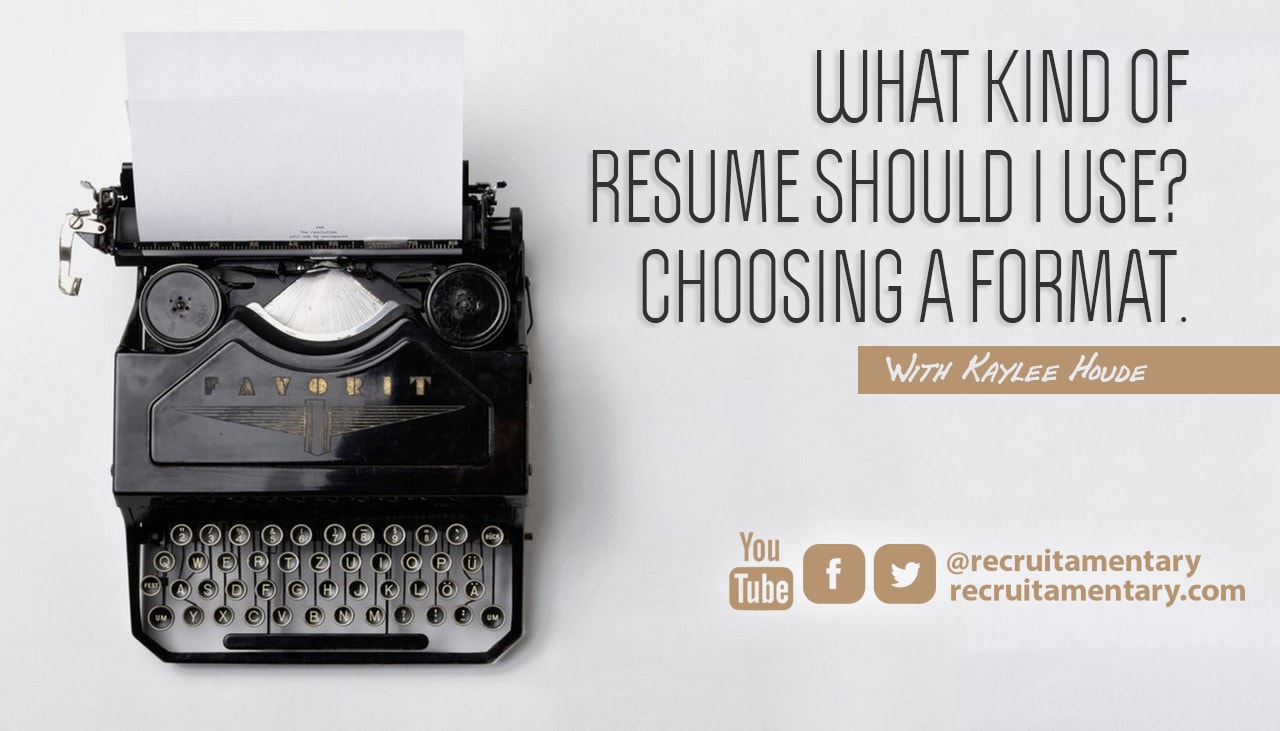What kind of resume should I use? Choosing a format.

Choosing a resume format depends on two key things:
(1) who you are and (2) what your end goal is.
There are two key types of resumes, chronological and functional. These will be reviewed at high level today to help you decide which to use when writing your next resume.
If you are an accountant, you have always been an accountant, you have linear work experience showing progression as an accountant, and your goal is to stay an accountant, then this is easy.
Developing a reverse chronological resume showcasing your experience in the order things happened is your best bet. You will showcase your progression, your key results and accomplishments through time. You have a clear brand and there is minimal deviation from your main industry or skill set.
However, as soon as you get into employment gaps, changing career direction, and using transferable skills from a handful of years ago to market yourself to employers, you may want to consider a functional resume, or a combination of the two (chronological and functional).

When to choose a chronological resume…
- All of your work experience is relevant
- You are staying in a relatively similar line of work
- The company you are applying at is traditional
- If you are not sure which type to choose
When to choose a functional resume…
- You have a gap in your work history or want to highlight very specific skills
- Your most relevant skills are not from your most recent work experiences
- You are making a career change
The risk you are taking when choosing a functional resume, however, is that not all employers are comfortable with this format. Therefore, I like the “combination factor” where you can leverage the best of both worlds. That’s correct, you do not have to pick just one format. Create a “Selected Achievements” section prior to leveraging your reverse chronological experience to highlight special strengths as it relates to the job posting.

Regardless of which you choose, or whether you choose at all, do make sure you put your most relevant skills, strengths, and results as the topmost section of your resume. Recruiters and hiring managers often have very little time to review and reflect on resume content, thus making it easy for them to understand using key words and good use of white space is your best bet at getting a call.
Remember, you do not have to include every experience and task on your resume, as the goal of the resume is not to inform the company of every tiny little thing you have done. It is to help the recruiter or hiring manager understand where you would add value so that they want to invite you to an interview.

Follow Kaylee on social media!